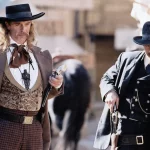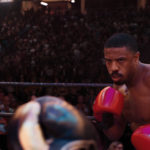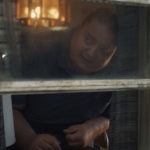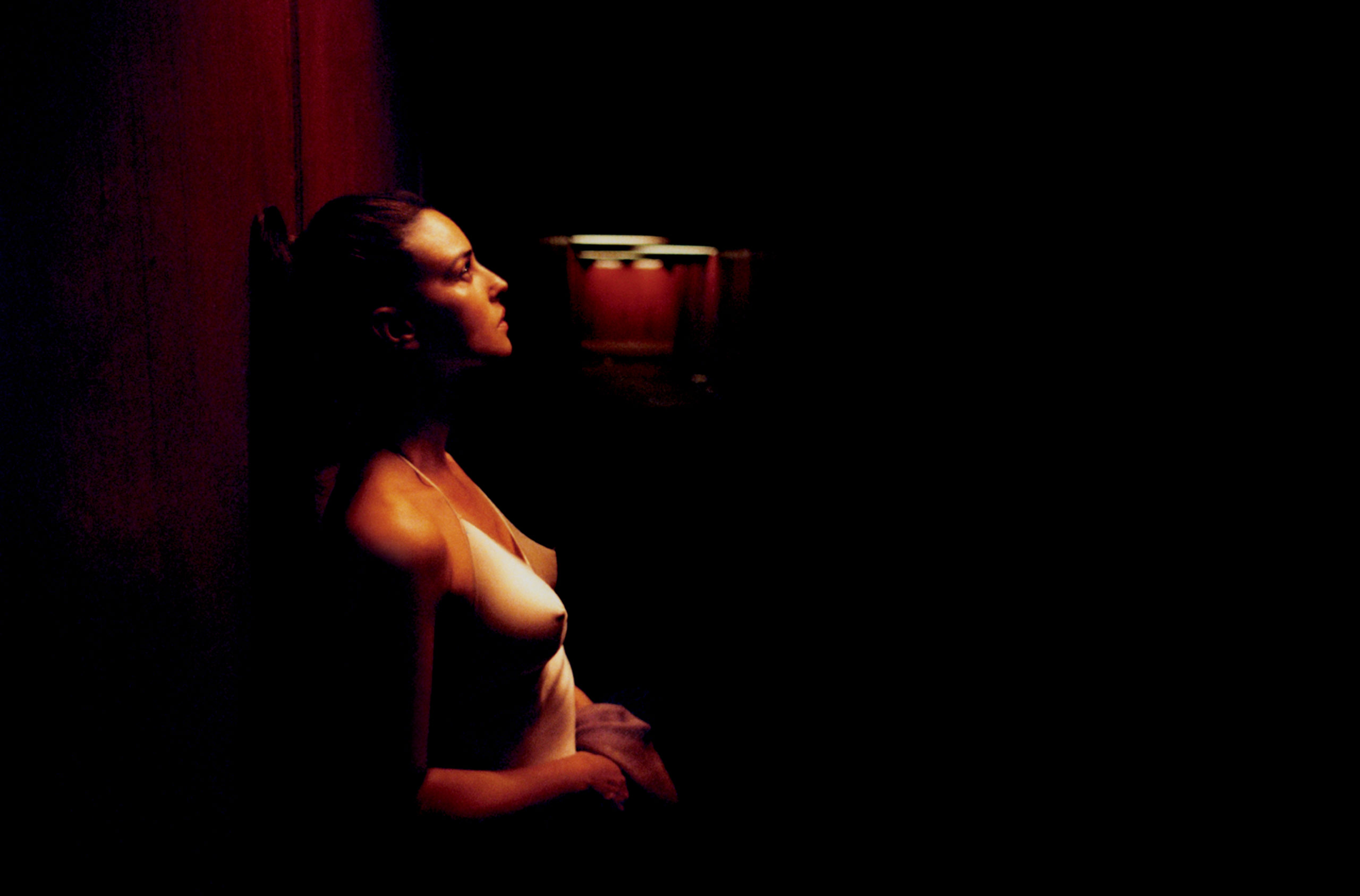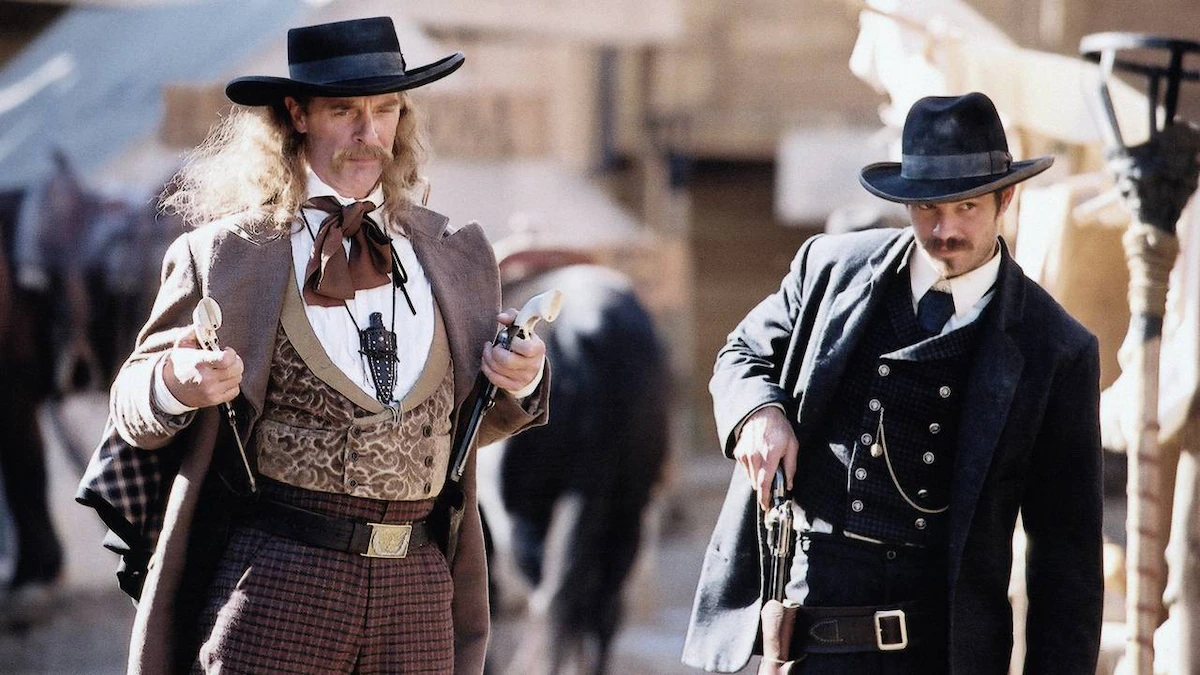
I’ve always found it to be an absurd amount of fun to see my hometown represented on-screen. The ability to point out small landmarks and locations that only a select few could identify brings its own kind of joy, and I’ve enjoyed it every time I’ve been able to do it.
I was born and raised in Chatham, Massachusetts, nestled right in the elbow of Cape Cod, one of the most beautiful destinations in the United States (and not only because summer tourists keep the Cape economy afloat). There’s one issue that I’ve only recently realized: everything that’s ever been professionally filmed there, movies and TV alike, is subpar at best, and unwatchable at worst.
Jaws is the exception that proves the rule. It was primarily produced in Chilmark, with only brief days dedicated in Martha’s Vineyard, an island directly off of Cape Cod. There’s an argument that it’s not even really a Cape movie. I cannot help but wonder if Cape Cod is cursed in the wake of Jaws, not one project since that film has managed to capture the essence of the Cape or even tell a compelling story.
There’s certainly a reason that you don’t see much filmed on Cape Cod — it’s a long drive from anywhere else (even in Massachusetts), and everything is unreasonably expensive. A film shoot there, even for a few weeks, is something that only studios with sizable budgets can afford. Even when money has been poured into expensive shoots, there’s barely anything redeemable that was created on-Cape.

The most notable piece of media created on Cape Cod is probably The Finest Hours, Disney’s retelling of a Coast Guard rescue mission in 1952. A nor’easter (an ocean cyclone, for those not familiar) splits the oil tanker SS Pendleton in two, and Chris Pine’s Bernie Webber leads the charge to rescue the Pendleton’s 32 surviving crewmen with only a 12-capacity rescue boat. An inspiring true story? Absolutely. A thrilling quasi-action thriller? Disney certainly wants it to be.
I have a lot of direct ties with The Finest Hours, including the fact that the cast and crew trailers were located in an abandoned lot directly across the road from my middle school. I never saw anyone I recognized, but years later Patty Jenkins told me that Chris Pine enjoyed filming in Chatham so much, he engaged Jenkins’ mother-in-law (a Chatham native) about it constantly during the filming of Wonder Woman 1984. I suppose it’s heartwarming that my small town will always hold a special place with A-lister Chris Pine, but it’s just a shame that the finished product was such a disappointment.
I wanted to like The Finest Hours, I really did. I was there at the local theater on the sold-out opening night. I appreciated seeing places I recognized on-screen — Chris Pine walked where I’ve walked! — but I came away feeling that my town had been objectified for the purposes of creating yet another soulless big-budget cash grab, trying to profit under the “true story” banner. Keep in mind, I had just turned thirteen, so my critical brain hadn’t fully developed yet.
It didn’t even make full use of the town itself, cutting many of the scenes that showcased the truly recognizable parts of Chatham. It’s disappointing that this could’ve easily been produced in another, less expensive location and not much would’ve changed.
It bombed making just over $50 million worldwide against a $70-80 mil budget. I can practically guarantee a solid percentage of its box office came from the Chatham Orpheum Theater.
This isn’t to say that everything filmed in Chatham, or on the Cape in general, needs to tell a “Cape Cod Story” focused on the beauty of the region, but why film there if not? There are so many movies and series produced at the Cape that, by all rights, should be good, but end up terrible. I don’t think that’s the fault of the Cape, but it’s a trend that’s becoming more and more noticeable. Perhaps, the Curse of Jaws is real?

Recently, I watched the 2012 Adam Sandler and Andy Samberg film That’s My Boy, which filmed at various spots on Cape. It’s a truly terrible movie, despite the massive amounts of talent involved. It’s a comedy with a premise that was doomed to fail, but the plot just so happens to involve a destination wedding, which just so happens to be on Cape Cod.
David Carradine, Bruce Dern and Rip Torn starred in The Golden Boys, a 2008 romantic comedy about three sea captains who seek out a mail-order bride to maintain order around their shared residence. As with anything shot in Chatham, I have connections there; my father was able to interview the three actors, and my dad’s best friend almost kicked Carradine out of Chatham’s most popular restaurant. This film is also, in every sense of the word, awful, with no substance or subtlety in sight. It made less than $50,000 at the box office, and I’m pretty sure my father owns the only DVD in existence. The director, Daniel Adams (who made other Cape-based features like The Lightkeepers and The Mouse), ended up indicted for filing false tax claims related to these film productions and went to prison for two years.
I won’t even dedicate much space to the Lifetime-esque movie A Cape Cod Christmas that came out in December 2021. The trailer told me everything I needed to know. It went through the whole film beat-by-beat. Nor will I expand upon Summer Catch, a Freddie Prinze Jr. movie about baseball and young love. Both are recommended skips.

Things aren’t much better on the TV side. It was a big deal when the tenth season of American Horror Story filmed in Provincetown, located at the tippy top of the Cape. Stars like Evan Peters (HBO’s Mare of Easttown, X-Men: Days of Future Past), Macaulay Culkin (Home Alone), and Sarah Paulson (FX’s American Crime Story: The People vs. OJ. Simpson) made the long journey to the Cape to film the season’s first half in early 2021. I hadn’t watched American Horror Story since its third season, but since it’s an anthology series, I skipped right to Season 10 to see Provincetown in all its glory.
It was the worst season of television I’ve ever seen. Aside from the laziness of re-using the same establishing shot in every single episode, every single ounce of the potential the season sets out in the first episode is squandered with rushed storytelling and criminally underdeveloped characters. So, essentially, it falls victim to the problems that plagues nearly every season of American Horror Story I’ve seen.
Maybe this is just my hometown pride talking, but it feels like Cape Cod has become an “insert location here” setting for two storytelling purposes. The first is for tales set in small, picturesque Massachusetts towns, mostly isolated from the rest of the state (The Finest Hours, The Golden Boys, American Horror Story). The second is for stories that requires some sort of vacation destination, and Cape Cod is plugged in as a recognizable location with a name associated with wealth and natural beauty. That’s My Boy fits the mold, though there are other smaller productions that make use of this convention as well.
None of these movies and shows even scratch the surface for what actually could be made on the Cape. There’s more story potential than most people realize, and specific to the area too: ghost stories, Pilgrim legends (they landed in Provincetown before ever going to Plymouth) and lots of untapped true stories. Instead, Ryan Murphy turns famous writers into vampires while on vacation.
I would be remiss if I didn’t mention The Way Way Back, a charming 2013 coming-of-age comedy that comes geographically close to being the best Cape Cod film, but it was actually filmed in Wareham a short drive away from the Cape. I also don’t want to ignore Hightown, a Starz thriller series set and filmed primarily in Provincetown. I’ve heard it has its moments, but I can’t speak to them as I have yet to see the show.
I wouldn’t go so far as to say I’m offended by the fact that very little worth-watching media has emerged from the little peninsula I call home, but I care about seeing Cape Cod represented well to the wider world on the big and small screen. I find myself wishing they were done with more care and respect. In fact, the best films created on the Cape might be the Edison Company’s silent films The Landing of the Pilgrims and Quaint Provincetown, released 1915 and 1917 respectively.
So…is Cape Cod cursed? It depends on who you ask, but when it comes to Hollywood productions, it is beginning to feel like it. I hope to see that change in the future.







